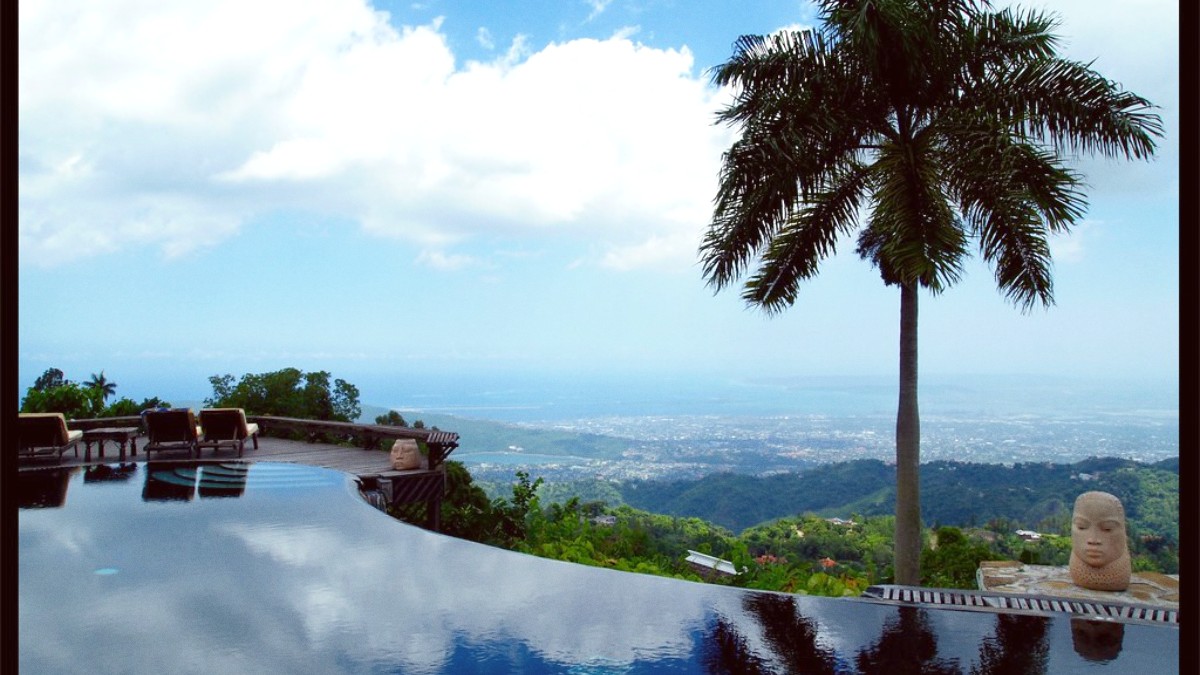
Jamaica
Unlike the tranquil beaches of Montego Bay or the relaxed atmosphere of Negril, Kingston delivers a spirited urban experience. Here, you connect with the daily rhythm of Jamaican life. You find the stories behind the music, the strength of the people, and the rich history shaping the island nation. This city invites you to draw close, to listen, and to truly connect. Your visit to Kingston will not simply be a vacation; it will be an immersion into Jamaica's very core. Prepare for a trip that touches all your senses and broadens your perspective of this distinct Caribbean island.
Kingston offers a travel journey different from Jamaica’s well-known resort areas. It is a place where those who love music trace the beginnings of reggae at the Bob Marley Museum, and those interested in history explore centuries-old architecture and national monuments. Food enthusiasts will discover a paradise of tastes, from spicy jerk chicken cooked over pimento wood to the freshest seafood direct from local markets.
The city acts as the island's creative engine, home to many art galleries, theaters, and performance venues. Green spaces like Emancipation Park are city retreats, while the nearby Blue Mountains invite hiking, coffee tours, and wonderful panoramic views. Kingston’s energy is clear; it is a city of business people, artists, and everyday Jamaicans. This gives a direct experience of local life, interactions with warm and resilient people, and a understanding of the island's culture beyond tourist materials. A visit to Kingston is not just a brief stop; it is a full immersion.
Kingston is a distinct geographical spot on Jamaica’s southeastern coast. It rests within a natural harbor, shielded by the Palisadoes peninsula, a long land strip enclosing Kingston Harbour. This strategic position made Kingston a famous port and commercial hub. The city's northern edge meets the majestic Blue Mountains, a range including Blue Mountain Peak, the island's highest point. These mountains present a cooler background to the tropical urban environment below and are a source of renowned coffee.
The city’s land features include flatter coastal plains where much of its urban growth stands, gradually moving upwards into the foothills of the Blue Mountains to the north. This diverse landscape means that within a short drive, visitors move from busy city streets to calm mountain forests. The city’s arrangement shows its growth, with older, denser parts nearer the harbor (Downtown Kingston) and newer, more structured commercial and residential areas (New Kingston) extending northward. This geographical variety influences the climate and available activities, offering both urban discovery and mountain trips nearby.
Southeastern coast of Jamaica.
Natural harbor protected by the Palisadoes peninsula.
Bordered by the Blue Mountains to the north, home to Blue Mountain Peak.
Coastal plains rising to mountain foothills.
Downtown Kingston (older, denser), New Kingston (newer, commercial/residential).
Kingston’s past is as intricate and layered as its landscape. Established in 1692 following a severe earthquake that devastated Port Royal, the city rapidly became a significant commercial hub. Its strategic harbor became a channel for trade and a naval base, drawing merchants, enslaved individuals, and diverse communities. By 1872, Kingston became Jamaica's capital, cementing its standing as the island's administrative and economic core.
Its streets witnessed profound societal and political shifts, molding the identity of modern Jamaica. Beyond colonial records, Kingston holds global recognition as the birthplace of reggae music. Here, in the inner-city areas, artists like Bob Marley, Peter Tosh, and Bunny Wailer refined their artistry, voicing the struggles and hopes of the people. This music transcended boundaries, becoming a worldwide phenomenon and a mark of defiance and solidarity. Traversing Kingston means journeying through Jamaica's historical periods. From colonial structures in downtown parts to the cultural spaces that nourished reggae, the city presents direct ties to its heritage.
Founded after the 1692 Port Royal earthquake, Kingston swiftly rose as a commercial port. It was declared the capital of Jamaica in 1872, reinforcing its role as the island's central administrative and economic area.
Kingston is the global birthplace of reggae music. Artists like Bob Marley developed their craft here, giving voice to societal challenges and dreams. This music crossed borders, becoming a worldwide symbol of unity.
The city presents tangible connections to its past, from colonial buildings downtown to the cultural yards that nurtured reggae.
Kingston offers a travel journey distinct from Jamaica’s well-known resort areas. It is a place where those who love music trace the beginnings of reggae at the Bob Marley Museum, and those interested in history explore centuries-old architecture and national monuments. Food enthusiasts will discover a paradise of tastes, from spicy jerk chicken cooked over pimento wood to the freshest seafood direct from local markets.
The city acts as the island's creative engine, home to many art galleries, theaters, and performance venues. Green spaces like Emancipation Park are city retreats, while the nearby Blue Mountains invite hiking, coffee tours, and wonderful panoramic views. Kingston’s energy is clear; it is a city of business people, artists, and everyday Jamaicans. This gives a direct experience of local life, interactions with warm and resilient people, and a understanding of the island's culture beyond tourist materials. A visit to Kingston is not just a brief stop; it is a full immersion.
Discover urban green spaces and nearby mountain adventures.
Experience the daily rhythm of authentic Jamaican life.
Explore music, art, and historical sites.
Those who love music can visit the Bob Marley Museum, and those interested in history find centuries-old architecture and national monuments. Food enthusiasts will discover a paradise of tastes, from spicy jerk chicken cooked over pimento wood to the freshest seafood available directly from local markets.